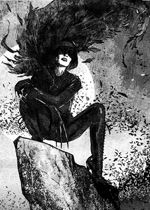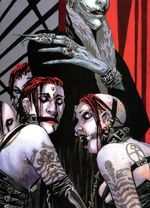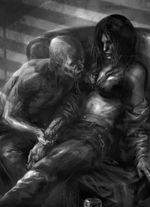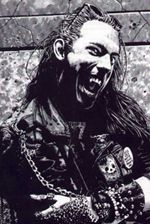Hecatoncheires
un jour je serai de retour près de toi
Original poster
DONATING MEMBER
FOLKLORE MEMBER

[size=+1]'Becoming' is a 'Vampire: The Masquerade' RP set in the modern nights of London, where players take the role of a young collective of vampires attempting to find their place amidst the monolithic, unflinching society of the Kindred. Danger lurks in every corner, even words are dangerous and the power-plays between factions of vampires have been raging from centuries and could easily consume those who are not careful or cunning enough to adapt to such a cut-throat, unforgiving society.
The game will likely be run via Skype or in one of the RPBoxes, though I could be convinced to run it via the forums.
But yes, in short, anyone interested in a Vampire RP?[/size]






 Any who doubt the monstrous nature of the Kindred need look no further than the twisted visages of the Nosferatu Clan.
Any who doubt the monstrous nature of the Kindred need look no further than the twisted visages of the Nosferatu Clan.
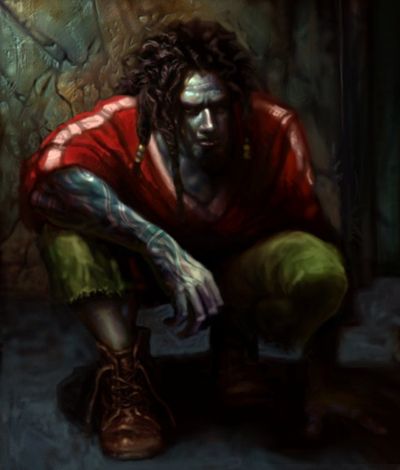 Perhaps more than any other group, the Gangrel Clan embraces the Beast that exists within them.
Perhaps more than any other group, the Gangrel Clan embraces the Beast that exists within them.
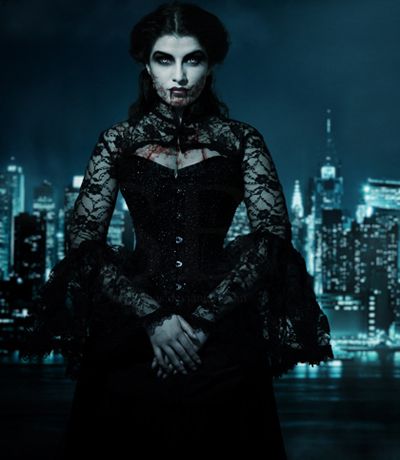 The socialites and visionaries of the Kindred, the Toreador, or Degenerates as many call them, are the vampires most likely to be found in the affairs of mortals. From their perspective when the sun fades, darkness gives rise to an eternal and wondrous world. Everything is fraught with wonder and terror, low politics and sensual glories, the profound and the profane, and an undeniable undercurrent of the sanguinary.
The socialites and visionaries of the Kindred, the Toreador, or Degenerates as many call them, are the vampires most likely to be found in the affairs of mortals. From their perspective when the sun fades, darkness gives rise to an eternal and wondrous world. Everything is fraught with wonder and terror, low politics and sensual glories, the profound and the profane, and an undeniable undercurrent of the sanguinary.
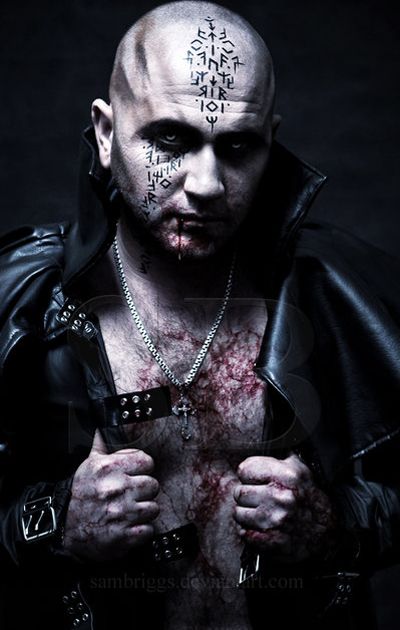 Possibly the youngest of the Thirteen Clans, the Tremere have fought fang-and-claw to carve a niche for themselves in Kindred society.
Possibly the youngest of the Thirteen Clans, the Tremere have fought fang-and-claw to carve a niche for themselves in Kindred society.
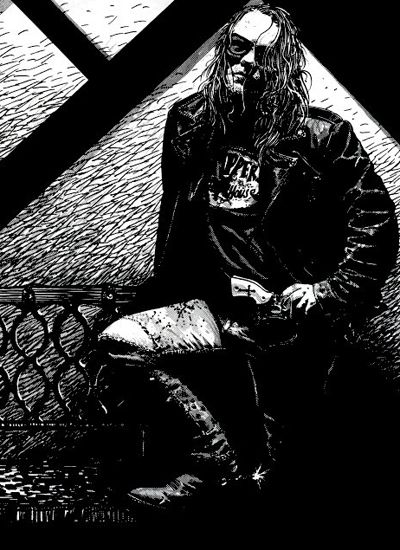 Fiery warrior-poets, rebels and provocateurs, the legacy of the Brujah is one of halcyon greatness marred by their own fiery natures. Theirs was the glory of ancient Carthage, but Ventrue treachery in ancient Rome brought the dream to an end.
Fiery warrior-poets, rebels and provocateurs, the legacy of the Brujah is one of halcyon greatness marred by their own fiery natures. Theirs was the glory of ancient Carthage, but Ventrue treachery in ancient Rome brought the dream to an end.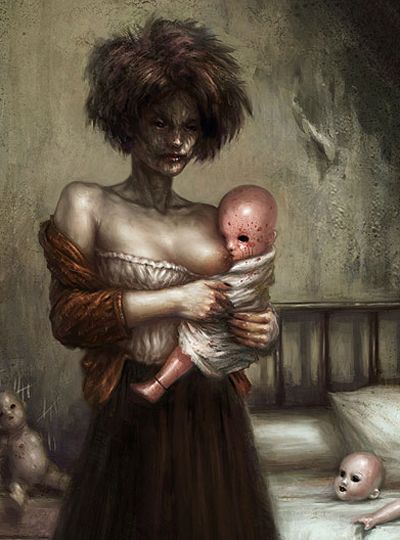 Clan Malkavian shows that it is possible to be damned twice.
Clan Malkavian shows that it is possible to be damned twice.
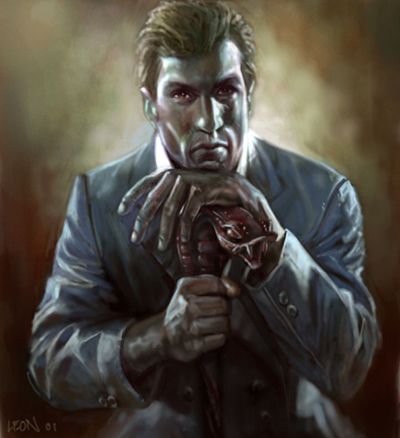 Throughout history, while the other Clans have skulked about their petty intrigues, the Ventrue have curried favour with Caesar, whispered into the ear of Charlemagne, bankrolled the Age of Exploration, and even swayed policy in the Holy See. Theirs
Throughout history, while the other Clans have skulked about their petty intrigues, the Ventrue have curried favour with Caesar, whispered into the ear of Charlemagne, bankrolled the Age of Exploration, and even swayed policy in the Holy See. Theirs 

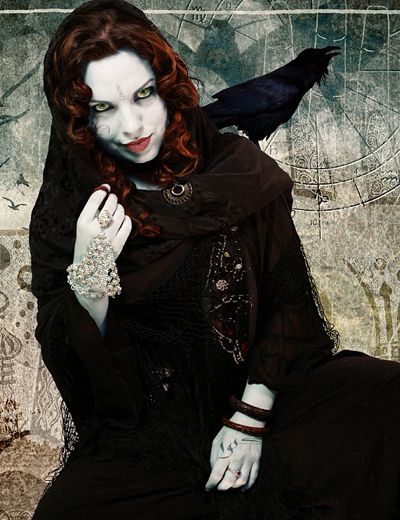 The Ravnos move like the rumours that surround them.
The Ravnos move like the rumours that surround them.
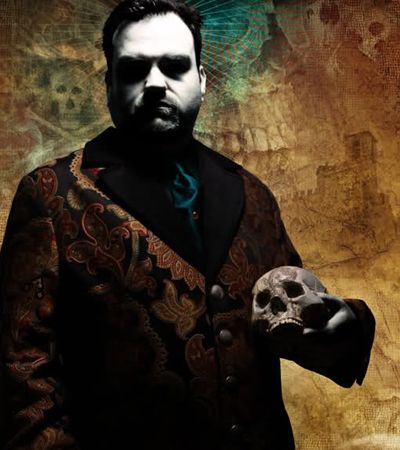 Not unlike the Tremere, the Giovanni are seen as usurpers.
Not unlike the Tremere, the Giovanni are seen as usurpers.
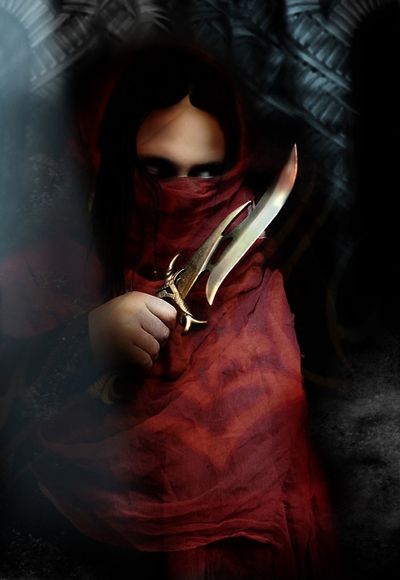 The childer of Haqim, known as Assamites to the rest of the Kindred, are a silent knife in the dark, an order of bloodthirsty assassins who participate in the secret wars of the undead by operating as killers for hire. Outside the purview of the Sects, the Assamites are true independents and mercenaries, hiring out to whoever can pay their blood-price and ungoverned by the will of Prince or Priscus.
The childer of Haqim, known as Assamites to the rest of the Kindred, are a silent knife in the dark, an order of bloodthirsty assassins who participate in the secret wars of the undead by operating as killers for hire. Outside the purview of the Sects, the Assamites are true independents and mercenaries, hiring out to whoever can pay their blood-price and ungoverned by the will of Prince or Priscus.
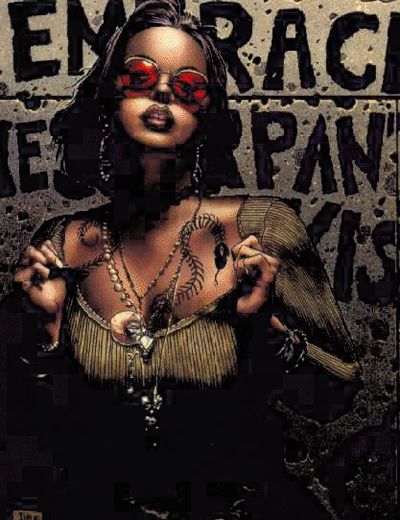 Addiction, debasement, corruption, and desperation strike fear into many Kindred who worry that theirs will become an unlife of ruin, but to the Followers of
Addiction, debasement, corruption, and desperation strike fear into many Kindred who worry that theirs will become an unlife of ruin, but to the Followers of 

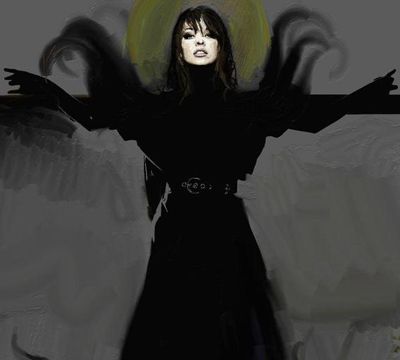 To the mind of a Lasombra, it is better to reign in hell than to serve in heaven.
To the mind of a Lasombra, it is better to reign in hell than to serve in heaven.
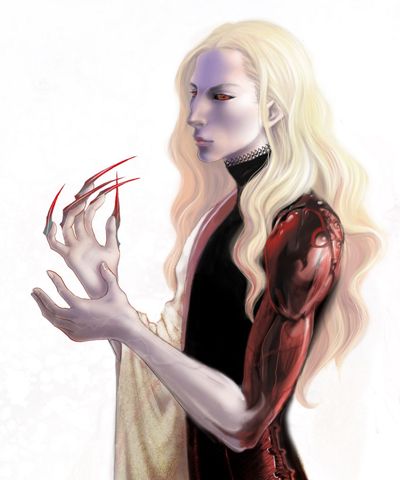 A blood moon casts a crimson light over the land beyond the forest and something fearsome howls its ag-ony into the night. The Tzimisce call these lands their ancestral home. Since time out of mind the Fiends have been masters and lords of the domains of much of Eastern Europe. But theirs is a proud, selfish Clan for which tradition goes only so far despite their aristocrat-ic origins. In fact, the Clan claims to have destroyed its Antediluvian, and in the wake of that momentous event, helped establish the foundations of the Sabbat.
A blood moon casts a crimson light over the land beyond the forest and something fearsome howls its ag-ony into the night. The Tzimisce call these lands their ancestral home. Since time out of mind the Fiends have been masters and lords of the domains of much of Eastern Europe. But theirs is a proud, selfish Clan for which tradition goes only so far despite their aristocrat-ic origins. In fact, the Clan claims to have destroyed its Antediluvian, and in the wake of that momentous event, helped establish the foundations of the Sabbat.